Xi’s golden tickets ‘the party’s strategy for survival’
More than 20 million people are on the waiting list to join the Chinese Communist Party. Why?
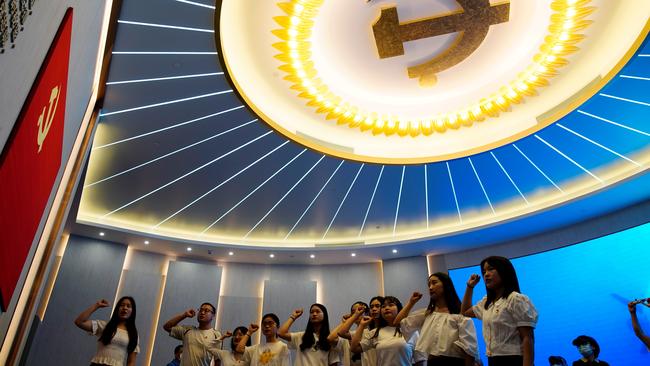
Xi Jinping’s Chinese Communist Party is the most sought-after private members’ club in the world. Its perks are life changing: better jobs, more pay, higher status.
The demands on members can be a drudge – particularly now all cadres must write an essay on every speech made by Xi, the party’s “chairman of everything”.
But China’s college students are desperate to join.
Membership is a lucrative credential in one of the world’s most competitive societies – one where more than eight million graduates are released each year into a cutthroat job market.
“If you want to get ahead in your career you must be a party member,” says Zhao Wenpeng*, 27, who was accepted five years ago at a technology university in Beijing where he is now finishing his PhD.
There’s also the cachet of joining the elite 6.5 per cent of what in less than a decade will likely overtake the US as the world’s biggest economy.
“I joined the party because I believe it is an organisation of advanced people,” Zhao tells Inquirer.
Three decades after university students almost brought down the regime with the 1989 Tiananmen Square protests, college campuses are now the party’s main hunting ground for new recruits.
It is a key plank of what Bruce Dickson, a professor at George Washington University and one of the world’s leading experts on the party’s recruitment strategy, has called the party’s “strategy for survival”.
Back when the party was preoccupied with class struggle, recruits came from the “three revolutionary classes”: peasants, workers and soldiers. Now the 95 million-strong party prefers a different profile – younger, better educated and more urban.
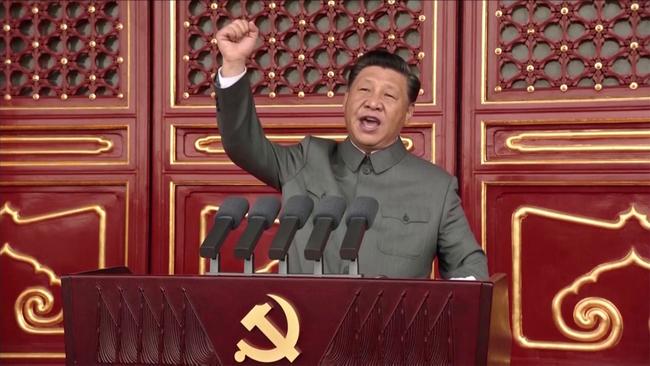
New recruits bring new anxieties. Xi and his leadership team worry about allowing in potential threats. Hence the demands for members to increase their political study of Xi Jinping Thought – an ever expanding ideology intended to program the minds of party cadres on foreign affairs, rule of law, economic reform and what “socialism with Chinese characteristics” means in 2021 and beyond.
“The goal seems to be loyalty to the CCP, and Xi above all,” says Dickson, author of The Dictator’s Dilemma and the recently released The Party and the People.
“Whether this will actually change anyone’s mind or just force them to parrot Xi Thought remains to be seen,” he tells Inquirer.
Clamouring to get in
Sun Wei*, 21, in her third year at a university in Shaanxi, is anxiously waiting for news from her college’s party committee.
“I really don‘t know if I will succeed or not,” she says. “My college party committee is very strict with member recruitment.”
A party secretary at a university in Xi’an, home of the Terracotta Warriors, told Dickson 80 per cent of the students at his university had applied to join. “It’s probably higher at Peking or Fudan,” says Dickson, naming two of China’s most elite universities.
Less than one in six applications is accepted. The waiting list for new members has swollen to more than 20 million. Even Hong Kong film star Jackie Chan, 67, says he wants in.
Things were different 30 years ago. University students did not want to join the same party that had killed hundreds, perhaps thousands, of their own in the 1989 Tiananmen Square massacre.
The opening up of the economy in the early 1990s, including the retrenchment of tens of millions of workers in the state sector, made membership seem even more of an anachronism.
That didn’t last long.
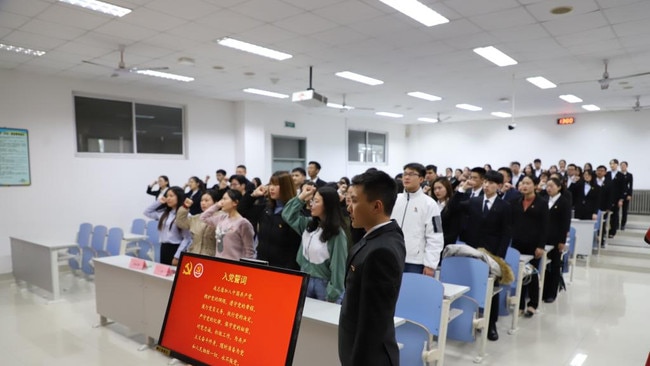
Under the leadership of general secretary Jiang Zemin and his successor Hu Jintao, the party made a concerted push to recruit younger, better educated, increasingly urban members.
Their efforts to co-opt China’s emerging elite were hugely successful. They restored political stability, which underpinned an economy that grew by about 10 per cent a year for almost two decades.
By last year, the average wage for an urban public sector worker in China was 90,501 yuan ($17,300), according to China’s National Bureau of Statistics. The average wage for their counterparts in the private sector rose to 53,604 yuan ($11,230), a similarly unimaginable sum for most of China’s 1.4 billion people decades earlier.
A sharp uptake in college members also gave the party more eyes and ears on the country’s university campuses. The party’s leaders were determined never to be rocked by student-led unrest again. Complementing the new recruitment approach was a post-Tiananmen patriotic education campaign that remains in rude health in the Xi era.
“To be patriotic is to support the party,” is how Dickson distils the message drummed into China’s youth.
Surveys he conducted in 2010 and 2014 of more than 3000 Chinese across 50 cities suggest the campaign has worked. As well as conflating the party with the state, Chinese overwhelmingly identified the country with themselves. More than 80 per cent of his respondents agreed with the statement: “When other people criticise China, it is as though they are criticising me.”
Not red enough
One of the first commands Xi issued on taking power was to make it harder to join the party. He was worried that many wannabe cadres were applying for careerist reasons – which is exactly what many were doing. And for good reason. A study published by the University of Bonn in 2008 on the economics of joining was emphatic.
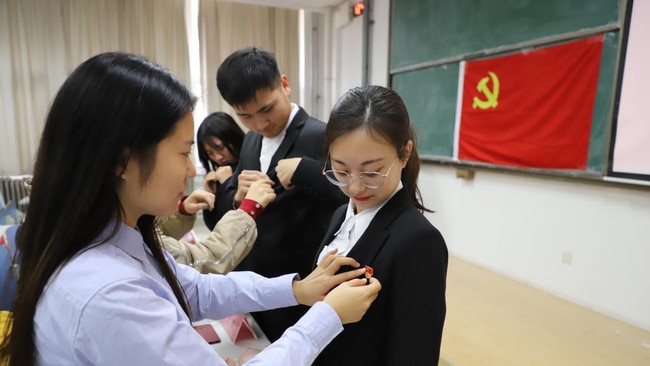
“Communist Party members earn higher wages,” Simon Appleton, John Knight, Lina Song and Qingjie Xia concluded. About a third more, the team of researchers found.
Partly that was because members of what was once a proletariat party were now better educated and more likely to have white-collar jobs than the rest of the population. But even when other variables were controlled, there was still a fat party wage premium – one worth 14 per cent for urban workers in 1999. No wonder demand to join surged.
One of them was Chen Yonglin, then a young Chinese diplomat. “If you work for the government, you need to be a party member. It’s like a certificate, a qualification,” Chen tells Inquirer matter-of-factly about his motivation for becoming a card-carrying communist in the mid-1990s. “Membership is like a ticket for promotion.”
Even workers in the private sector felt the pull after China’s then leader, Jiang, declared business owners could join the party in 2001.
“It showed that you had been vetted,” Dickson says of the new appeal of “red” private sector employees. “That you had a strong background. You had good grades. You behave yourself.”
In surveys Dickson ran in 2010 and 2014, the most popular answer given when young party members were asked why they joined was “helpful to career”. Languishing in fifth place was “work for communism”. Non-members were even more cynical about the motives of their fellow citizens’ party membership. It was a situation Xi – a leader dubbed “redder than red” – wanted changed. His party delivered. After Xi’s first year in charge, the Organisation Department revealed new recruits had fallen to 2.4 million people, the lowest intake in a decade.
But the struggle was not over. More than three years into Xi’s rule, the People’s Daily reported on a troubling survey by a party committee at a Beijing university. It found some aspiring party members still had “incorrect motives for joining” and “lacked true feeling for serving the masses”.
College applicants were put on notice to increase their public demonstrations of “party spirit”.
Zhao – the doctoral candidate who was accepted into the party in 2016 – carefully followed the script. At 19, he presented his party application on entering his Beijing technology university. As he tells Inquirer, he then followed the necessary steps: he learned from other party members, he worked in the students union, he got prize-winning academic grades and he tried to get along well with his classmates.
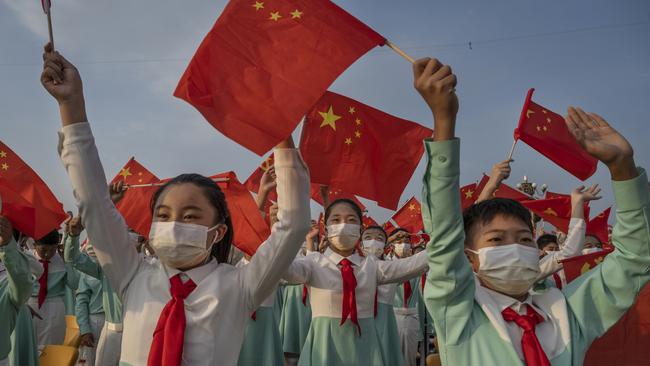
He also joined the “study Marxism youth team”, an after-class group run by older student party members and party school teachers. “I didn’t miss a single class until I was accepted by the party.”
Another technique used by party recruiters on campuses is to preference the sons and daughters of members – people such as Xi.
Swearing the oath
For most members the process to join takes years. Even Xi didn’t get in until his 10th attempt. In Chen Yonglin’s case, he ended up getting in during an overseas posting in Fiji.
He had tried twice before at university and later at the foreign ministry’s Beijing headquarters. That last effort was thwarted by a senior colleague – a member of the committee that vetted Chen – who was unhappy about a perceived slight of his authority at work.
As for all would-be members, the process began with the endorsement of Chen’s written application by two party members: in his case, the deputy head of mission and another diplomat in China’s Fiji embassy.
The Fiji branch – led by the ambassador who, as with all heads of mission, was also the party committee’s general secretary – decided to proceed with the young diplomat’s application.
Chen now had the status of a “party-entry activist”. He continued to attend political study sessions and submit regular thought reports to demonstrate his understanding of the party’s ideology, discipline and “correct world view”. Background checks on Chen’s family were done to inspect the political reliability of his family, as happens for all would-be members. In Chen’s case that included his father, who was persecuted to death in the Cultural Revolution.
Finally, at age 26, he was accepted. In front of the party’s flag, Chen swore an oath to remain loyal to the party, guard the party’s secrets and be “ready at all times to sacrifice my all for the party and the people and never betray the party”.
It did the trick. He got the promotion he signed up for and a few after that.
A decade later, Chen spectacularly defected to Australia while working in China’s consulate in Sydney. He is not sure if the party’s Organisation Department has removed him from the list of 95.148 million members. “They might still include me in the statistics,” he says from Sydney.
Rising risk
The future inductees to Xi’s 100-year-old party are crucial to the success of his overarching political project: the great rejuvenation of the Chinese nation – that is, to make China great again. “We must keep firmly in mind the old adage that it takes a good blacksmith to make good steel,” he explained in his speech on July 1 to mark the party’s 100th anniversary.
Signing up now is not without risks. As well as being eligible for elite jobs, to join the party is to become a person of interest to the Central Commission for Discipline Inspection. This is a powerful outfit that exists outside of China’s regular legal system and is entirely concerned with the misbehaviour, and alleged misbehaviour, of party members.
Just as the number of new recruits has fallen since Xi took charge, so has the number of inspections of cadres by the discipline commission risen. It is the most sweeping political campaign since the Mao era.
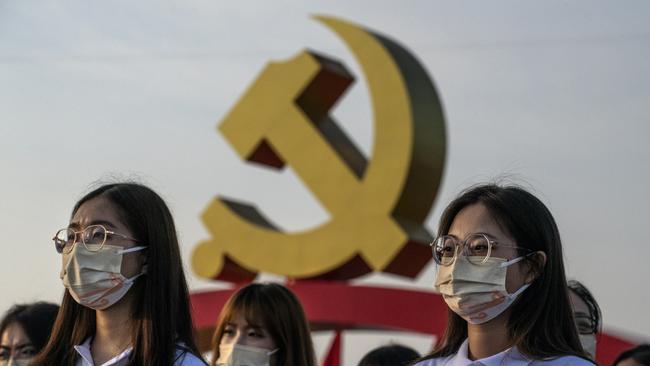
The impact on party membership of this recalibration of perks and punishment is unclear.
Surveys of public opinion that were possible back in the Hu era are no longer tolerated in Xi’s much more repressive China.
“The old-fashioned, face-to-face surveys seem to be a thing of the past,” says Dickson.
That leaves the world less informed on China’s party state as it becomes more consequential.
Anecdotal evidence suggests Xi’s demands for more party spirit are finding novel expression in the more entrepreneurial pockets of China.
Many would-be party members pay for pre-written answers for their applications and even for self-criticisms. And once inside, some chose to outsource the increasingly time-consuming demands of party study, including the required essays on Xi’s speeches. Time-poor cadres can buy pre-written answers – a sort of red CliffsNotes – for as little as 28 yuan ($5.80) so they can fulfil their party duties, technically if not in spirit.
A businessman behind one such venture this month told the South China Morning Post his archive of “Xi notes” included more than 40,000 samples.
Products for sale included summaries of the leadership’s key policies, pointers on how to respond to discipline inspections and – a current top seller – an analysis of Xi’s recent hour-long centenary speech.
Neither the party study demands nor emboldened discipline committee have turned off Sun, the third-year undergraduate student in Shaanxi. She remains determined to join her parents, both party members in stable public sector jobs.
“If I am not accepted before my graduation, I am sure my jobseeking will be affected,” she worries.
Her back-up plan if she does not get in this year? “I may have to do postgraduate study – until I join the party.”
*Names have been changed.




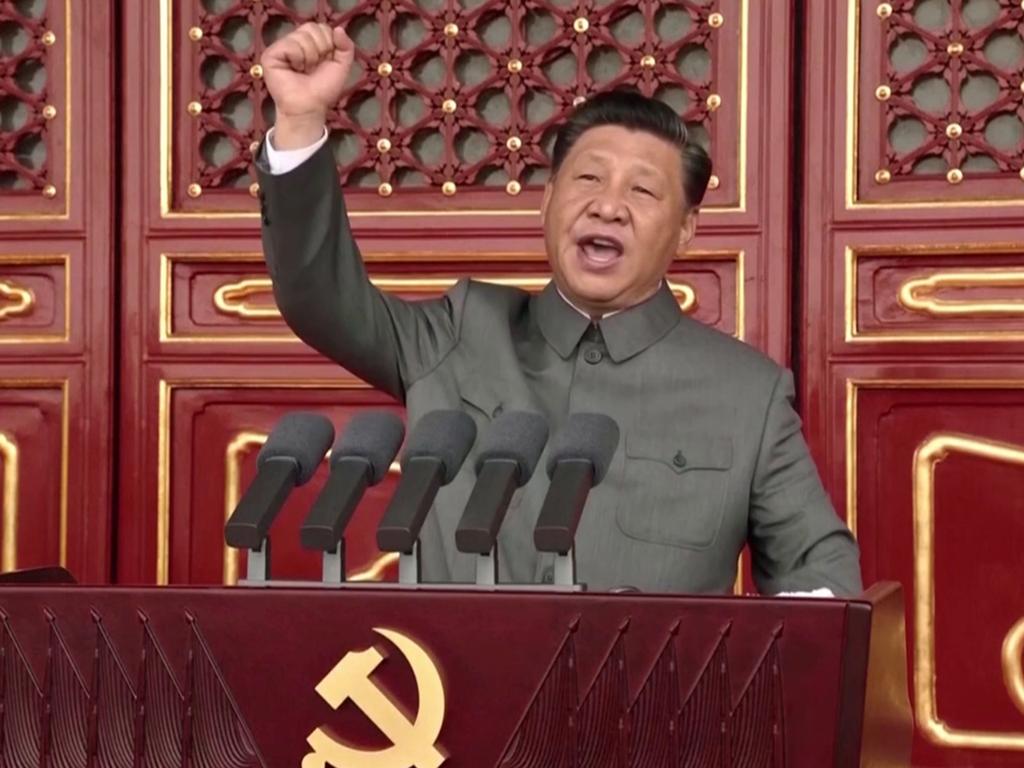
To join the conversation, please log in. Don't have an account? Register
Join the conversation, you are commenting as Logout